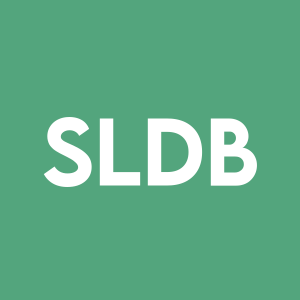| Item 2.02. |
Results of Operations and Financial Condition. |
On November 3, 2025, Solid Biosciences Inc. (the “Company”) announced its financial results for the third quarter ended September 30, 2025. The full text of the press release issued in connection with the announcement is furnished as Exhibit 99.1 to this Current Report on Form 8-K and is incorporated herein by reference.
The information provided under Item 2.02 of this Current Report on Form 8-K (including Exhibit 99.1) shall not be deemed “filed” for purposes of Section 18 of the Securities Exchange Act of 1934, as amended (the “Exchange Act”), or otherwise subject to the liabilities of that section, nor shall it be deemed incorporated by reference in any filing under the Securities Act of 1933, as amended (the “Securities Act”), or the Exchange Act, except as expressly set forth by specific reference in such a filing.
| Item 7.01. |
Regulation FD Disclosure. |
On November 3, 2025, the Company announced positive new interim data from its Phase 1/2 INSPIRE DUCHENNE clinical trial. A copy of the press release issued in connection with the announcement is furnished as Exhibit 99.1 to this Current Report on Form 8-K and is incorporated herein by reference.
Also on November 3, 2025, the Company made available an updated corporate presentation on its website. The corporate presentation is furnished as Exhibit 99.2 to this Current Report on Form 8-K.
The information provided under Item 7.01 of this Current Report on Form 8-K (including Exhibits 99.1 and 99.2) shall not be deemed “filed” for purposes of Section 18 of the Exchange Act, or otherwise subject to the liabilities of that section, nor shall it be deemed incorporated by reference in any filing under the Securities Act or the Exchange Act, except as expressly set forth by specific reference in such a filing.
On November 3, 2025, the Company announced positive new interim data from its Phase 1/2 INSPIRE DUCHENNE clinical trial, a Phase 1/2 first-in-human, open-label, single-dose, multicenter trial designed to evaluate the safety, tolerability and efficacy of SGT-003 in pediatric participants with Duchenne muscular dystrophy at a dose level of 1E14vg/kg. SGT-003 is administered as a one-time intravenous infusion, and a regulatory update.
INSPIRE DUCHENNE
Interim Clinical Data Update
The interim clinical data is reported as of a September 29, 2025 data cutoff date, with additional safety data reported as of October 31, 2025. As of October 31, 2025, 23 participants have been dosed in the trial. Enrollment in INSPIRE DUCHENNE is ongoing at 15 clinical trial sites across the United States, Canada, Italy and the United Kingdom. The Company expects to dose a total of 30 participants by early 2026.
Statistical correlations, as measured by the Pearson correlation coefficient, were observed between Day 90 SGT-003 microdystrophin therapy and reconstitution of key components of the dystrophin-associated protein complex (“DAPC”), including beta-sarcoglycan and neuronal nitric oxide synthase (“nNOS”). Beta-sarcoglycan is a critical component of the dystrophin associated / sarcoglycan complex that is highly expressed in cardiac and skeletal muscle and plays a crucial role in maintaining muscle integrity. Myopathy and cardiomyopathy are observed in diseases in which the sarcoglycan complex is absent. nNOS plays an important role in protecting cardiac and skeletal muscle by improving vasodilation and reducing functional ischemia and muscle breakdown. The Company’s microdystrophin construct is the only microdystrophin gene therapy, approved or investigational, that contains the R16/R17 binding domain, which localizes nNOS to the muscle membrane.
Strong correlations were also observed between SGT-003 microdystrophin therapy and improvements in several biomarkers of muscle integrity, including serum creatine kinase (“CK”), lactate dehydrogenase (“LDH”), aspartate aminotransferase (“AST”) and embryonic myosin heavy chain (“eMHC”), suggesting a coordinated downstream effect of treatment with SGT-003.









